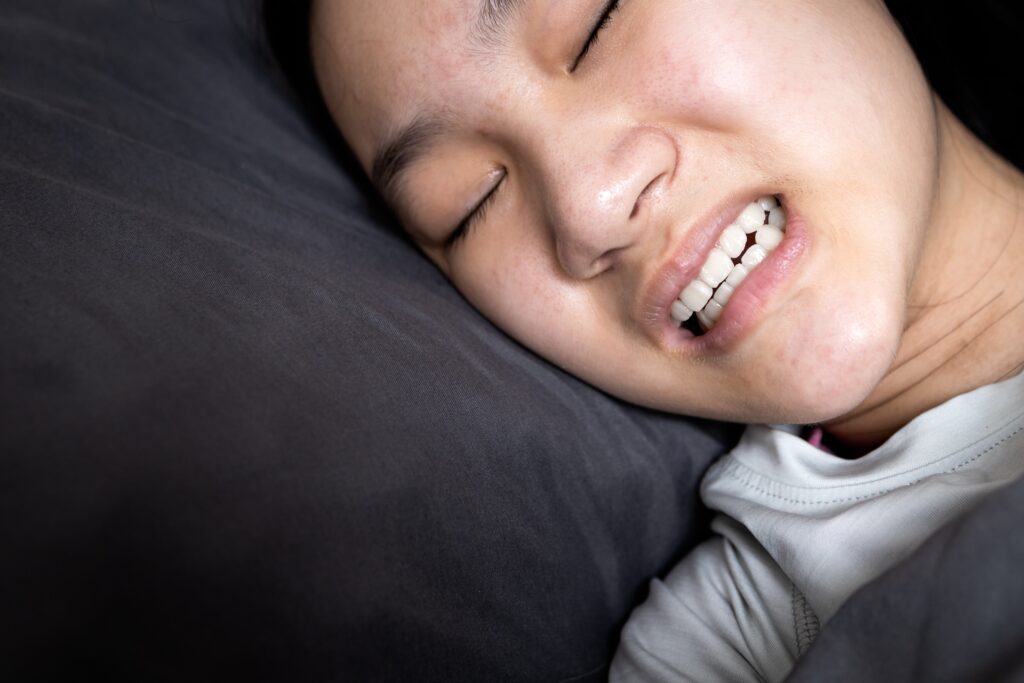Grinding your teeth at night? Here’s what to do
Do you sometimes wake with jaw and neck pain? You may be grinding your teeth while you sleep. Read on to discover more about this sleep disorder.

Involuntary grinding and clenching of your teeth while you sleep is also known as bruxism. It most commonly occurs in children, adolescents and young adults but can occur at any age.
Generally, most people aren’t aware that they grind their teeth while they sleep and may apply substantial force on their teeth and jaw! They usually discover they have this sleep disorder when their sleeping partner mentions it, or by some tell-tale symptoms.
What are the symptoms?
Signs and symptoms of bruxism can include:
- Loud grinding and clenching of teeth that wakes your sleep partner
- Waking up with jaw, neck or face pain
- Pain that is similar to an earache, but not related to your ear
- A dull headache located in your temples
- Tired or tight jaw muscles, or a jaw that won’t open or close completely
- Flattened, fractured, chipped or loose teeth
- Worn tooth enamel that can lead to tooth pain or sensitivity
- Chewed insides of your mouth
- Disrupted sleep.
What causes teeth grinding at night?
The causes of teeth grinding isn’t completely understood. However, it’s believed to be related to a combination of physical, psychological and genetic factors. Factors that increase the risk of bruxism include:
- Stress, anxiety, anger and frustration
- Certain medications such as antidepressants
- Smoking and other recreational drugs
- Caffeine
- A family history of bruxism
- Medical conditions such as mental health disorders, Parkinson’s disease, dementia, gastro-oesophageal reflux disorder (GORD), epilepsy, night terrors, sleep apnoea and attention-deficit/hyperactivity disorder (ADHD).
What are the complications of grinding your teeth at night?
Most of the time, night-time teeth grinding doesn’t cause serious complications. However, if it’s severe or left untreated it can cause significant damage to your teeth, fillings, crowns or jaw. It can also lead to facial or jaw pain, headaches or disorders of the joints in front of your ears.
What can you do?
Most of the time, children outgrow bruxism without the need for treatment and many adults don’t grind their teeth badly enough to require treatment. However, if the problem is severe or causing complications, treatment may be necessary. This is usually in the form of splints and mouth guards designed to keep teeth separated and prevent grinding. In some cases, dental surgery may also be required.
You can also reduce your risk of bruxism by managing stress, avoiding smoking, watching your caffeine intake, and discussing side effects of medications with your doctor or pharmacist.
At BedGuard, we specialise in helping you get a good night’s sleep with our wide range of supportive, high-quality mattresses. While it may not solve all your sleep problems, a quality mattress will go a long way to helping you sleep well. Browse our range or visit our store today





